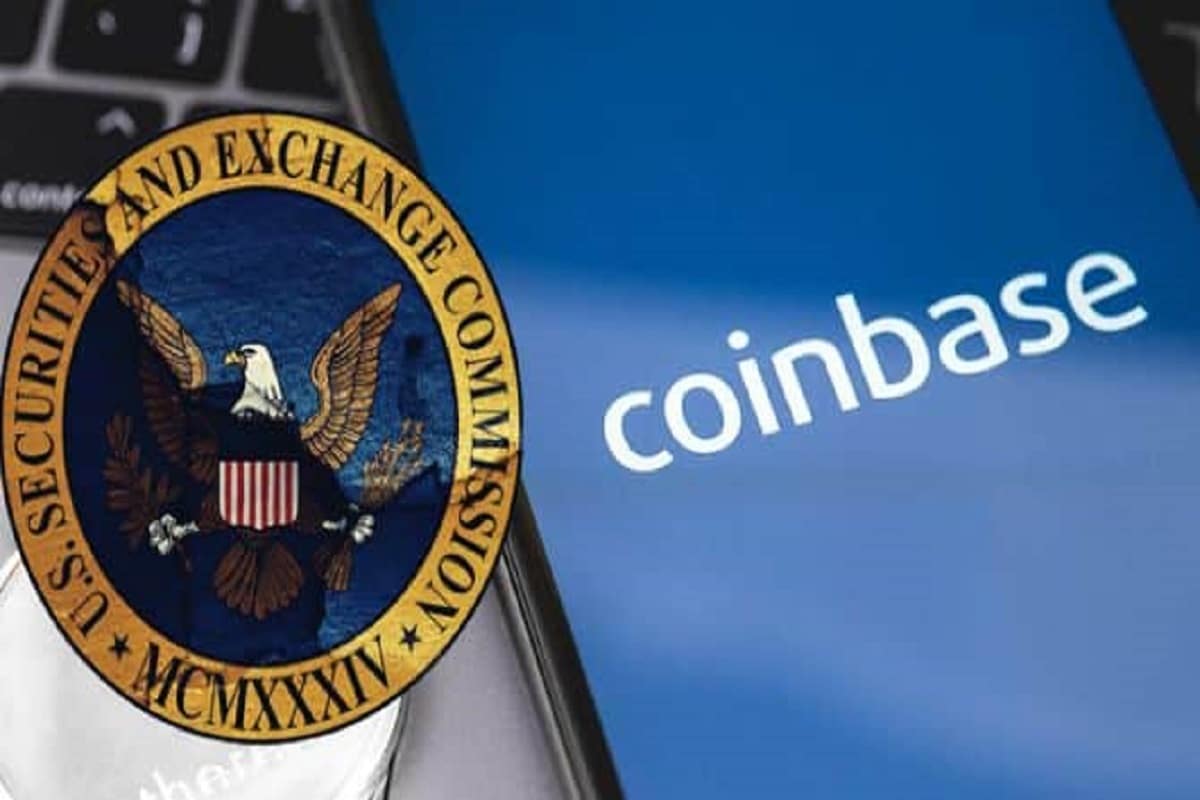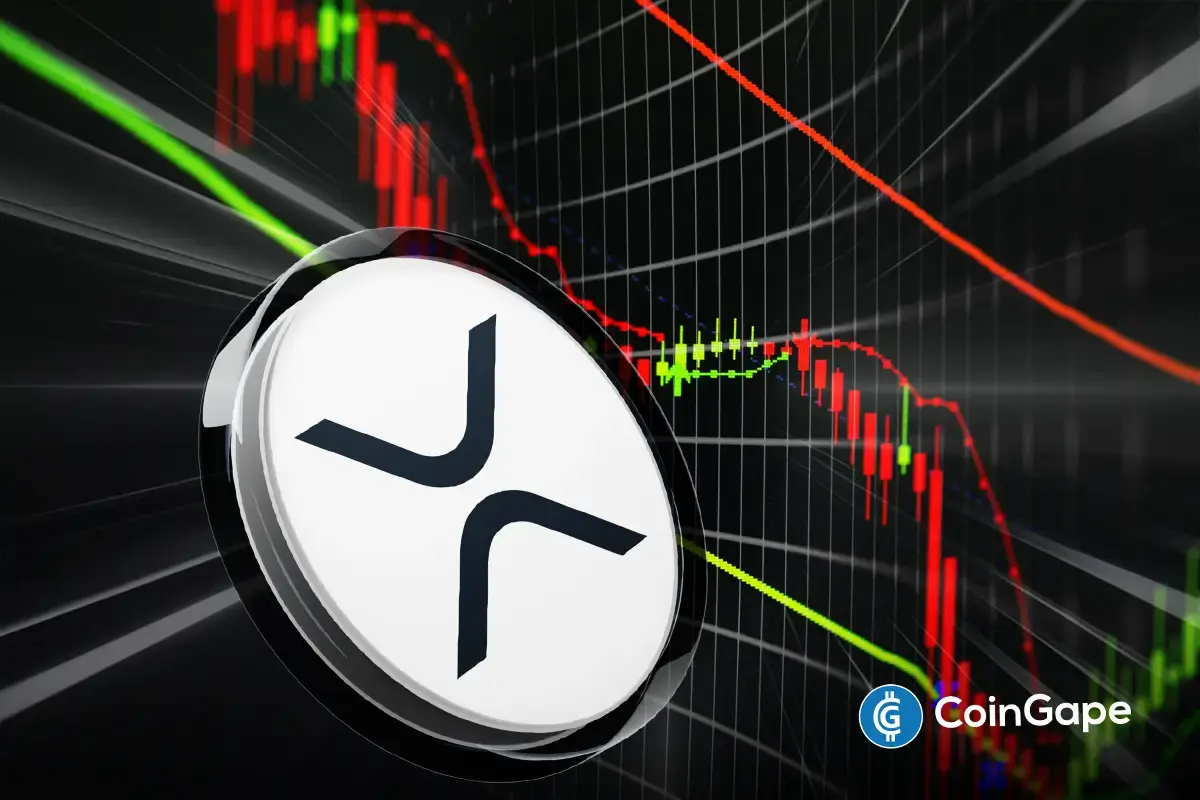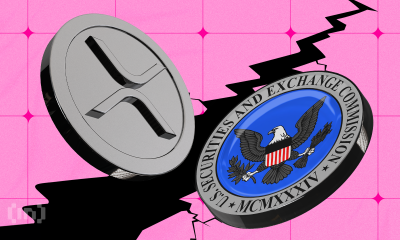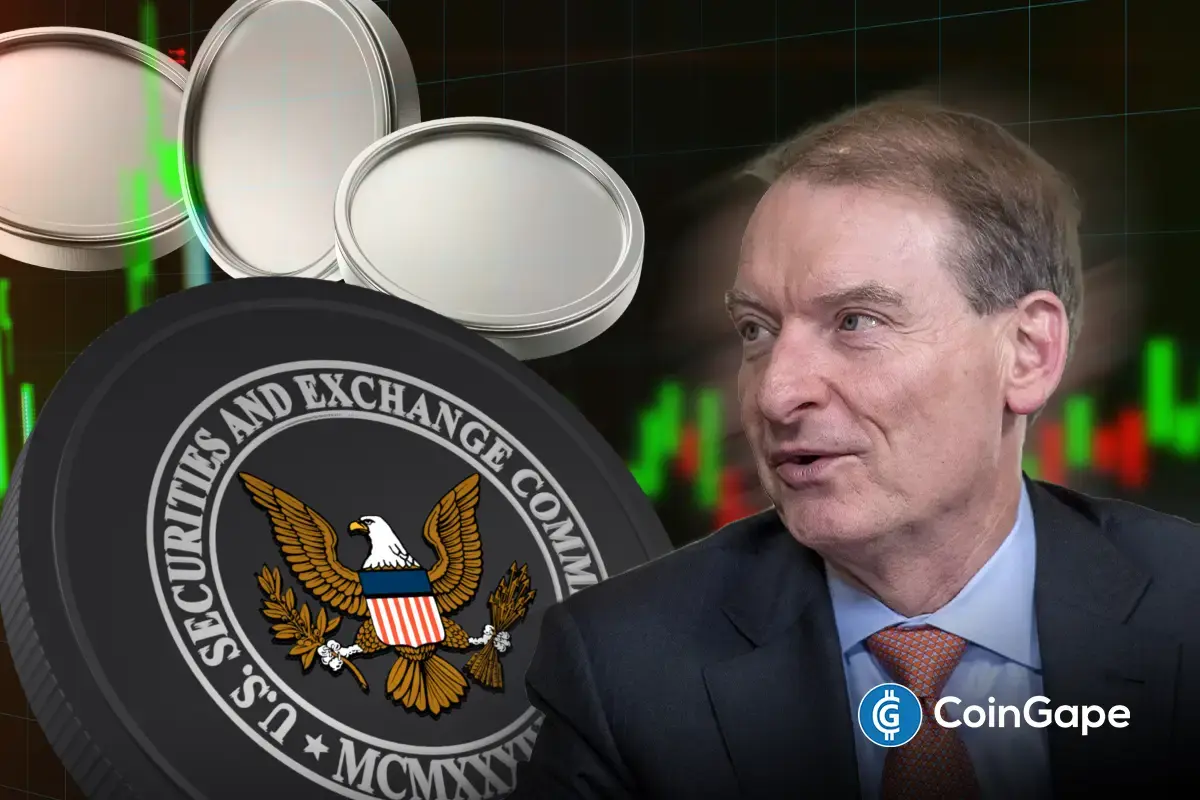Regulation
Coinbase Files Closing Brief In Lawsuit Over SEC Rulemaking Denial

Coinbase, a leading crypto exchange, has filed its closing brief in a lawsuit challenging the Securities and Exchange Commission (SEC). The case centers on the SEC’s denial of rulemaking petition by Coinbase, which the exchange argues is crucial for the digital asset industry. In addition, the brief highlights the regulatory agency’s shift in stance regarding crypto.
Contents Of Coinbase’s Closing Brief
At the heart of Coinbase’s argument is a single, controversial sentence in the SEC’s denial. The SEC’s order merely “disagree[d]” with Coinbase’s concerns about the workability of current SEC rules for digital asset firms. Coinbase claims this disagreement lacks reasoned decision-making. “The SEC’s order must be vacated on this elementary ground alone,” wrote Paul Grewal, Coinbase’s Chief Legal Officer.
Coinbase’s brief describes a troubling pattern of SEC behavior. The SEC has demanded compliance from digital asset firms based on an expansive interpretation of its authority, yet it has refused to establish clear rules to enable such compliance. Instead, the SEC has launched extensive litigation against companies for failing to comply with unclear regulations.
“This pattern of conduct is a purposeful effort to destroy an industry by demanding the impossible and prosecuting companies that fail to achieve it,” the brief asserts. Moreover, Grewal elaborates on the broader implications of the regulatory agency’s stance. In addition, the SEC claims it doesn’t need to make compliance feasible for the industry.
“The SEC apparently views its rules not as tools to enable compliance with federal statutes, but as weapons to dismantle industries it disfavors,” the closing brief states. Moreover, the agency’s justification for its stance includes pointing to its numerous enforcement actions as proof that existing rules are workable.
Furthermore, Coinbase counters that these enforcement actions are merely part of a broader strategy to crush the digital asset industry. “They are a bludgeon—by design,” Coinbase argues. The brief also addresses the inconsistency in the SEC’s approach to digital assets over the years.
Also Read: Coinbase Adds Shiba Inu, FLOKI, BONK In Full-Trading Mode, Prices To Recover?
Shift In SEC Chair Gary Gensler’s Stance
SEC Chair Gary Gensler‘s statements have shifted from acknowledging the lack of a clear regulatory framework for crypto exchanges in 2021 to asserting broad regulatory authority a year later. Additionally, the SEC allowed Coinbase to go public in 2020 without indicating its business model violated securities laws. Now, the SEC is suing Coinbase, claiming those same business practices are unlawful.
Moreover, the crypto exchange emphasizes that the SEC’s shifting positions and inconsistent enforcement actions have created a climate of confusion and uncertainty. For instance, while Bitcoin and Ether are not considered securities, the SEC has not clarified why other digital assets are treated differently. This inconsistency is exemplified by the SEC’s selective targeting of tokens in its enforcement actions.
The SEC’s reliance on its vague “facts and circumstances” standard for determining whether digital assets are securities is another point of contention. Coinbase argues that this standard is too abstract and fails to provide clear guidance. “The SEC has never coherently explained why the facts and circumstances underlying Bitcoin and Ether lead to a different result than the facts and circumstances underlying the tokens it has claimed are securities,” the CEX states.
Moreover, Coinbase highlights that rulemaking is the appropriate mechanism to address these issues. Rulemaking would require the SEC to articulate a clear theory of its regulatory approach, subject it to public comment, and ensure judicial review before enforcement. This process would provide the necessary clarity and fairness for the digital asset industry.
Coinbase’s closing brief underscores the necessity of judicial intervention. In addition, the company urges the court not only to vacate the SEC’s order but also to mandate rulemaking. “Only a court order directing [the SEC] to commence rulemaking will end its caprice,” the brief concludes.
Also Read: XRP Price To Rally 500% As XRP/BTC Witnesses Reversal, Analyst Predicts
The presented content may include the personal opinion of the author and is subject to market condition. Do your market research before investing in cryptocurrencies. The author or the publication does not hold any responsibility for your personal financial loss.
Regulation
US Senators Reintroduce PROOF Act To Set Reserve Standards for Crypto Firms

As crypto regulation gains ground in the US under pro-crypto President Donald Trump, US Senators are taking further steps to strengthen oversight of digital asset firms. Senators Thom Tillis and John Hickenlooper reintroduced the Proving Reserves of Other Funds (PROOF) Act, which aims to create new standards for transparency and fund management in the cryptocurrency sector.
US Senators Reintroduce PROOF Act Bill
According to Eleanor Terrett, US Senators Tillis and Hickenlooper have renewed their push for the PROOF Act, which was first introduced in 2023. The bill responds to concerns raised by the collapse of FTX, where customer funds were reportedly mixed with the company’s own capital and redirected to affiliated firms.
The PROOF Act would prohibit the co-mingling of customer assets by digital asset custodians and exchanges. It sets requirements for monthly third-party reserve checks, which would ensure that firms hold enough reserves to back customer holdings.
Independent auditing firms would perform these checks, sending the results to the U.S. Department of the Treasury.
Mandatory Proof of Reserves Checks
Under the US Senator’s proposed law, all firms offering digital asset custody or exchange services must undergo monthly Proof of Reserves (PoR) inspections. These checks would verify that firms hold the assets they claim to possess on behalf of their clients.
PoR uses cryptographic tools like Merkle trees and zero-knowledge proofs to verify balances without revealing user data. To ensure transparency, the inspection reports would be made public through the Treasury Department. If a company fails to comply, it will face civil fines that increase with repeated violations.
Although some firms have previously voluntarily shared proof of reserves information, these practices have been inconsistent and often lacked third-party verification. The PROOF Act would create a standardized process across the industry.
Preventing Fund Mismanagement in the Crypto Industry Through The PROOF Act
The US Senators’ renewed effort to pass the PROOF Act follows the financial failure of several crypto companies, most notably FTX. Reports showed that FTX moved customer deposits to its sister firm, Alameda Research, without proper disclosure or reserves, contributing to a major loss of trust in the sector.
Lawmakers aim to reduce the risk of mismanaged or missing funds by introducing strict reserve reporting requirements. The bill, as a result, intends to give customers more confidence that their digital assets are safe and properly accounted for by crypto firms.
The legislation also encourages more responsible behaviour from digital asset institutions by requiring them to follow clearly defined standards. These standards subsequently support regulatory oversight and prevent future financial harm to customers.
SEC Leadership and Regulatory Developments
The reintroduction of the PROOF Act follows Paul Atkins’s appointment as the new Chair of the Securities and Exchange Commission (SEC) in the United States. The Senate endorsed Atkins with a 52 to 44 majority in acknowledging his position on precise crypto regulations.
As a result, the Division of Corporation Finance of the SEC published guidance for crypto issuers as a follow-up to Atkins’ confirmation. The guidance also involves disclosure concerning business models and financial statements and risks associated with digital assets that fall under the definition of securities.
Subsequently, Senator Cynthia Lummis, a pro-Bitcoin legislator, has corroborated the development while acknowledging optimism about the future under Atkins. She stated that from her conversation with Atkins, she became confident in his handling of digital asset regulation.
Disclaimer: The presented content may include the personal opinion of the author and is subject to market condition. Do your market research before investing in cryptocurrencies. The author or the publication does not hold any responsibility for your personal financial loss.
Regulation
US President Donald Trump Signs First Crypto-Related Bill Into Law; Report

US President Donald Trump has signed a joint resolution that will repeal an IRS rule affecting decentralized finance (DeFi) platforms.
This legislation, which has passed through both the Senate and the House, aims to prevent the IRS from enforcing tax reporting requirements on DeFi protocols. The move is seen as a key development in crypto regulation.
Donald Trump Signs First Crypto-Related Bill Into Law
According to ex-Fox journalist Eleanor Terret, the US president Donald Trump has signed the resolution into law imminently.
The bill marks the first time a US president will sign a crypto-related bill into law. It comes after weeks of legislative activity, during which both chambers of Congress passed versions of the resolution with broad bipartisan support. The Senate passed the final version of the bill on March 26 with a 70–28 vote after the House approved it on March 11.
Overview of the Repealed IRS Rule
The IRS DeFi broker rule, introduced during the Biden administration, was designed to expand existing tax reporting requirements to DeFi platforms.
Consequently, these platforms are required to report gross proceeds from crypto transactions and provide identifying details about the parties involved. The rule was part of a broader effort to close tax gaps and improve oversight in the cryptocurrency sector.
However, the rule drew criticism from the crypto industry and some lawmakers. Opponents argued that the decentralized structure of DeFi protocols makes it difficult or impossible to gather user data or file tax reports. Many, however, said that enforcing such requirements would hinder development and discourage innovation in the blockchain space.
Congressional Action and Political Support
The resolution to overturn the IRS rule passed with broad support in both chambers of Congress. Although a similar resolution passed in the Senate earlier in March, a revised version originated in the House due to rules governing tax-related legislation. The final Senate vote on March 26 completed the process and sent the resolution to President Donald Trump.
Senator Ted Cruz, who introduced the resolution, stated that the IRS rule was “an attack on emerging technologies that could transform financial systems.” As a result, the legislation received support from lawmakers who emphasized the need for clear, innovation-friendly policies on crypto regulation.
David Sacks, the White House’s AI and crypto advisor, confirmed President Donald Trump supports eliminating the rule. Sacks said the administration aims to protect decentralized technologies from what it sees as overregulation.
Implications After Donald Trump Sign
Once signed into law by Donald Trump, the resolution will exempt DeFi platforms from complying with certain IRS tax reporting obligations. This will, as a result, give developers and operators of decentralized protocols more freedom to operate without facing regulatory penalties for noncompliance with rules they cannot practically follow.
The repeal also signals a shift in how federal policymakers view crypto technologies. With this bill, US President Donald Trump will formalize a new stance on crypto regulation that emphasizes technological growth and decentralized innovation.
Industry groups like the DeFi Education Fund have supported the resolution and called it a step toward more practical crypto policy in the United States.
Disclaimer: The presented content may include the personal opinion of the author and is subject to market condition. Do your market research before investing in cryptocurrencies. The author or the publication does not hold any responsibility for your personal financial loss.
Regulation
Cash App’s Block Inc Settles for $40 Million Over AML Failures For Crypto Platform

Block, Inc., the company behind Cash App, has reached a $40 million settlement with the New York Department of Financial Services (NYDFS). The penalty follows an investigation into the company’s failure to maintain proper anti-money laundering (AML) compliance.
The NYDFS found that Block had significant issues with its AML program, particularly with its handling of Bitcoin transactions and customer due diligence.
Block Inc. Settles for $40 Million Over AML Failures
According to the NYDFS, Block’s AML compliance program had several critical flaws. The regulator pointed out that Block failed to implement sufficient controls to prevent money laundering and other illicit activities.
The investigation revealed inadequate customer due diligence, especially regarding Bitcoin transactions, which allowed largely anonymous transactions to go unchecked.
According to Adrienne A. Harris, the NYDFS Superintendent, “Compliance functions require growth in order to scale with the size and scale of the company.” The department also pointed out that between 2019 and 2020, Block’s extent of growth inevitably brought about a backlog, particularly with transaction alerts and responses, which were not treated immediately. This led to more transaction volume flow, hence compromising the site’s capabilities and making it vulnerable to criminal activities.
Previous Settlements and Efforts to Improve Compliance
This fine is the second recent sanction of Block for alleged AML failings. Earlier this year, the company settled a similar issue by paying $80 million to 48 state regulators in January. Moreover, another firm, OKX, faced a $1.2M fine in Malta over allegations of breaching AML regulations.
Block, in a statement, also noted that “Cash App has invested large amounts of both financial and other capital into compliance remediation and improvements.” However, the company failed to accept the findings of the report produced during the investigation. Instead, it sought to assure customers that it had taken note of the violations and was working on fortifying its compliance mechanisms to avoid such mishaps.
As part of the settlement terms and conditions, Block’s management has to appoint an independent monitor. This monitor will be tasked with assessing the company’s compliance program progress. These measures will remain ongoing, as the NYDFS will monitor Block’s compliance with regulatory expectations moving forward.
Cash App Under Scrutiny as Crypto Regulations Tighten
Block, Inc. operates Cash App, a peer-to-peer payment service that also allows users to buy, sell, and transfer Bitcoin. Cash App has been regulated under the NYDFS as a virtual currency business since 2018.
The company’s growing role in the cryptocurrency market has made it subject to increased regulatory scrutiny, especially in light of the rapid rise in popularity of Bitcoin and other digital assets. However, addressing Bitcoin’s status, Jack Dorsey warned that limiting BTC’s use case to a digital equivalent of gold could lead to its “irrelevance.”
Concurrently, in addition to settling the latest AML case, Block recently launched a new open-source toolkit aimed at helping companies better manage their Bitcoin treasury holdings. The toolkit includes a corporate Bitcoin holdings dashboard and a real-time BTC-to-USD price quote API.
Disclaimer: The presented content may include the personal opinion of the author and is subject to market condition. Do your market research before investing in cryptocurrencies. The author or the publication does not hold any responsibility for your personal financial loss.
-

 Market17 hours ago
Market17 hours agoPresident Trump Signs First-Ever Crypto Bill into Law
-

 Altcoin18 hours ago
Altcoin18 hours agoXRP Price Risks 40% Drop to $1.20 If It Doesn’t Regain This Level
-

 Market16 hours ago
Market16 hours agoXRP Price Ready to Run? Bulls Eyes Fresh Gains Amid Bullish Setup
-

 Market18 hours ago
Market18 hours agoEthereum Price Cools Off—Can Bulls Stay in Control or Is Momentum Fading?
-

 Altcoin16 hours ago
Altcoin16 hours agoBNB Chain Completes Lorentz Testnet Hardforks; Here’s The Timeline For Mainnet
-

 Market24 hours ago
Market24 hours agoControversy Follows Babylon’s BABY Token Launch and Airdrop
-

 Market13 hours ago
Market13 hours agoHow Vitalik Buterin Plans to Enhance Ethereum’s Privacy
-

 Market11 hours ago
Market11 hours agoHBAR Buyers Fuel Surge with Golden Cross, Suggesting Upside

























✓ Share: